Poetry Is Labor and Work Poetry is labor and work. People should be paid for their labor and work. Asking people to pay to consider their poetry is exploitative. Taking advantage of people’s desire for an audience is exploitative. Taking advantage of people’s desire for exposure is exploitative. Exploiting labor isn’t thoughtful or beautiful. Yes, this goes for contests as well.
Category Archives: CHAOS
Poetry from Ari Nystrom-Rice
Echoes of Up and Down
To Lucifer my conscience treks a path
Down upward spirals built in temple’s hull
Such lullabies of orchards are his wrath
What harvest’s feed spurs echoes of the skull?
Do I walk back and back across the seed?
Plentiful with their bewildered light’s star
And I, the gardener tempted by need
Throw careless handful at soils endless scar
In a theoretical where is up?
For I swirl a revolved product again
Directionally paralyzed mix up
this great bed, a flesh, felt like acids hot rain
But, like infinity I am not scale
So I, alone, staggered, walk this trail.
Poetry from Taylor Dibbert
Too Late If you find yourself Thinking that Marriage counseling Might help Your troubled marriage, You are Almost certainly Too late. Taylor Dibbert is a writer, journalist, and poet in Washington, DC. He’s author of the Peace Corps memoir “Fiesta of Sunset,” and the forthcoming poetry collection “Home Again.”
Poetry from Helena Jiang
The Boy who Looks at Nowhere
Walks with his eyes closed,
And hands in sashes;
Leaves limpid footprints everywhere,
When the kerbs croak,
As if at night;
Tries to be abnormal
Even to the abnormal,
Till guilt catch up with him—
Umber empire chocolate:
If chewed quickly off,
No bitterness would linger
On the buddiest tongue.
He starts on his bike,
In deliberate swerves,
Waddling in puddles black
With skins of mud,
Unfeeling
When bits of grits snap into his shanks in fits.
At the store he stops,
Stooping for a plant whose voice has taken flight,
Whose sheen has dimmed
Like his granny’s eyes.
At home he fidgets,
Feeding her with vitamin pills,
Then wash them down with a nozzle
Refitted from the muzzle of a favourite gun.
At night he talks to her
In kinky gutters,
Fearing that the brine of his tears
Would soak her dead:
On the brim of the night,
At the height of her desk.
Quick as a travelling sand,
Frail like a buckling band.
He sings only when it thunders
So that no one hears his howl.
Sail In
All are sailors in winds,
Rigging the bunts of umbrellas,
In shapes of
Guns, cigars and forearms.
But some are only eaten away,
Gnawed by the gusts,
Into turbid pieces.
The wind,
At the palimpsests of their emaciation
In my mind.
But under stirs
Fake leaves wave too,
And some songs sound better on reflection.
Then I’ll view them as stories of mine,
Written in malaport style and the very
Wrong voice,
Thus from which I move on to a next,
Better one to compose.
The rain wafts,
Dyeing the paves black
As if ink
Into a flattened pool.
Poetry from Qodirova Madinabonu Mirzamaxmud
Teacher Winter. The snow has learned the purity from you teacher Spring. The flowers have learned the beauty from you teacher Warm shines of the sun pattern is you Your knowledge is light in the darkness, too If this world is an ocean, my precious jewel is you If this world is a flower, my wisest gardener is you If students are stars, you are my endless sky You are the brightest sun that lights my way. Teacher this world would not meaning without you The human step would not reach the moon without you The honorable name of "teacher" would not heard in the world No one's value, the honor would not glorified like you All respect to you, all thanks to you my dear After all, my wonderful world is you my dear
Mixed media from Phil Demise Smith

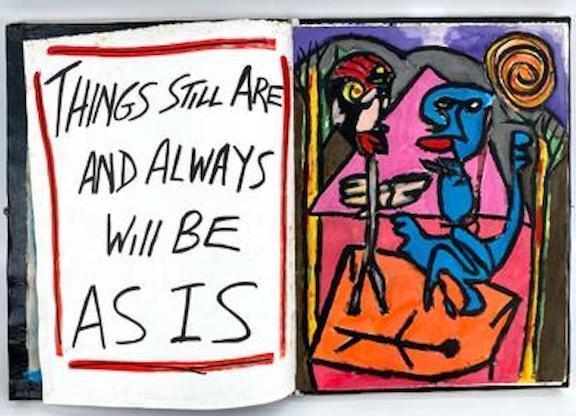

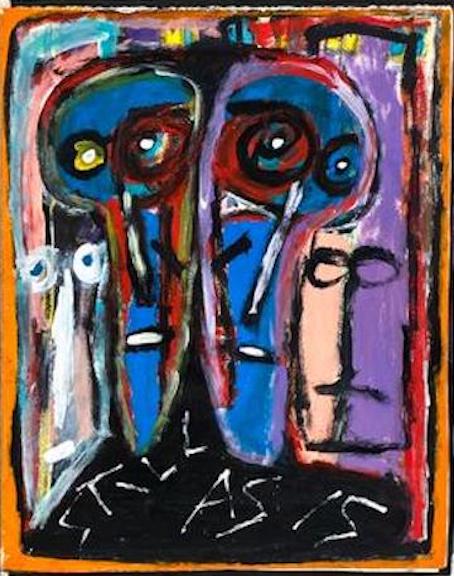
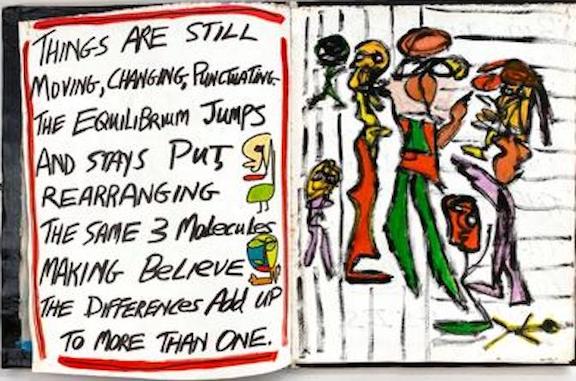
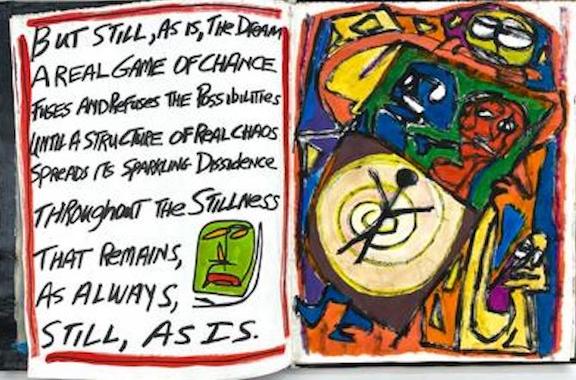
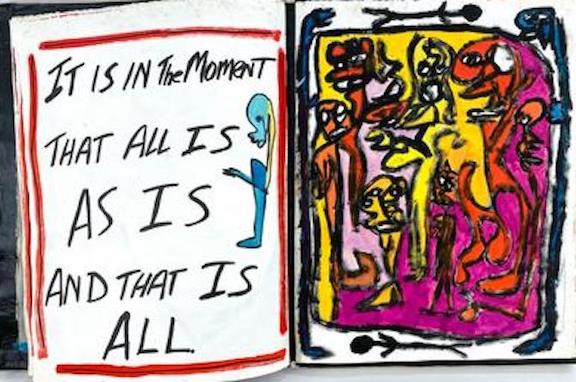
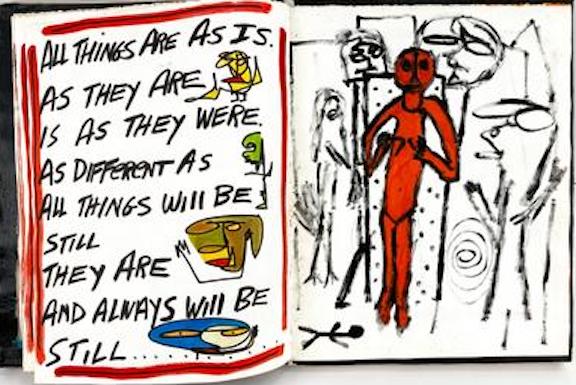
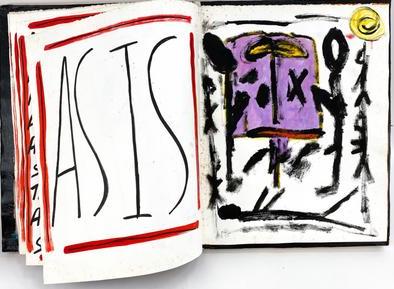
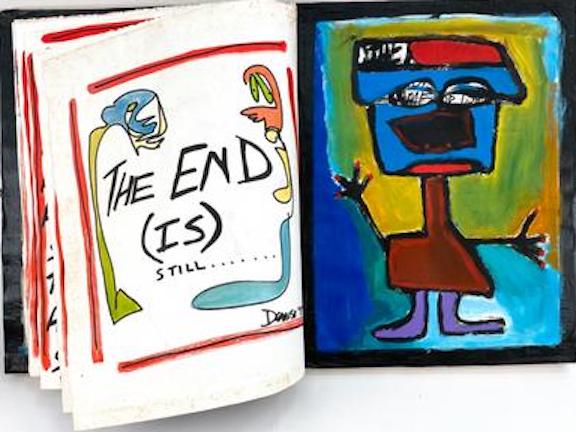
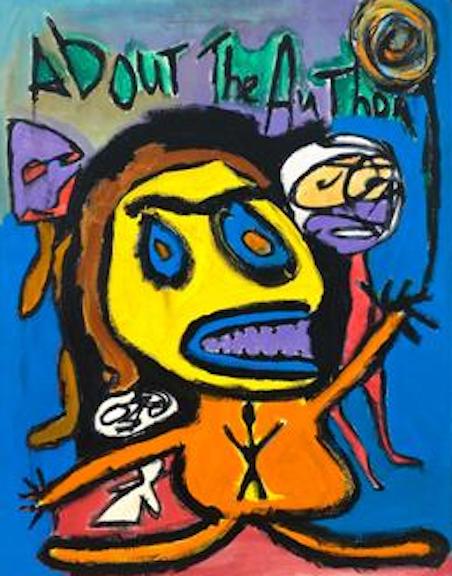
I have often thought about the relationship between what was and what is and about the motion of the stillness that is “now” (see my attached homage to Mondrian). In “Still Is , As Is“ I’m using the vastness of definition and context and the vision that language and paintings provide in order to illustrate my experience of living within the vibrant, alternating current of yin yang alternatives – the back and forth, the yes and no, the right and wrong of real life….things move ahead within the stillness of now. They move through time in order for the chaos to become what is. What is, is born from what was, while remaining still, as is. It’s the oxymoron of still moving.
Phil Demise Smith
Poet, musician, artist, gallerist, teacher. Was the editor /publisher of Gegenschein Press and owner/producer at NYC performance loft- The Gegenschein Vaudeville Placenter from 1976-1978. Published in numerous magazines mostly in the 1970’s and 80’s and has had numerous chapbooks published including What I Don’t Know For Sure (Burning Deck), Periods, selected writings 1972-1987 (Gegenschein Press), History of Pre-Diction w/ drawings by Gérard Sendrey (Gegenschein Press). Has given numerous poetry readings in the U.S. and Europe. Began playing music in 1975 and has written over 200 songs and performed with numerous bands at NYC clubs (i.e. CBGB’s, Max’s Kansas City, Folk City, The Bitter End etc) – most recent recording (2021) being a vinyl record album Growing in the Dark with AnDna. In 1987 began to paint and since has had numerous one person and group shows in the U.S. and Europe including an exhibition at the The Musée Création Franche in Bégles, France and has work in many collections including in the collection of the Musée d’art brut, Montpelier, France. Was owner/gallerist of Outsider Art at A Gallery @ Wares For Art (1996-1999).
Poetry from Stephen Nwankwo
I REWRITE THE FUTURE IN THE SKY, HOPING FOR A NEW TREE
I rewrote the future in the stars hoping a new tree to sprout out
And a new story to begin, wishing the rainbows to duplicate the earth
And its habitats like stars in the sky painting the future was necessary for you because
tomorrow may be too late and our fruits also withered like a lifeless vegetation.
Peace and justice will find its way to the throne of power and all those whose ears are made of
steel will be melted in the ever glowing fire of fulfilled dreams
Those whose tongues denies the truth must therefore assemble with open confessions
and my countrymen will no longer be a bunch of thorns on my flesh
And expectations for a clean environment of metaphors hanging on the sky, the day will soon come and a new generation shall be birthed into this world of we mortals.
Casualties
Yesterday I leaned on a couch,
And today am on a journey to see
The casualties of my poem.
My tongue fell into the hole of my head,
And pains like tapeworms slides into view
To shield me from darkness.
A tree standing without a head
Is my hostess on that plane
That swallowed the sky and Rebirth’s another casualties.
